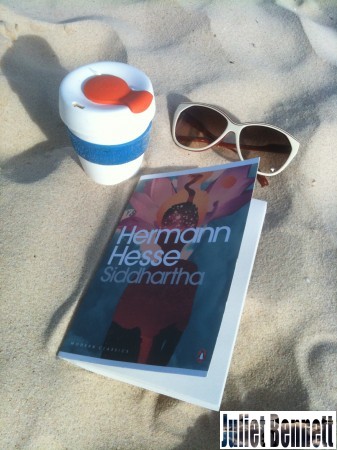Didn’t they abolish slavery a couple of hundred years ago? Well no – it continues… and it continues such to provide the “haves” with what (in my opinion) is the most delicious tasting delightful experience of all my being: chocolate.
[youtube]http://www.youtube.com/watch?v=fX6_3wSsXq4[/youtube]
In my opinion there is NOTHING worse than physical slavery and nothing better than chocolate, and so I face the greatest polarity in my world: the best and worse wrapped into a block of bitter sweetness.
Can you believe that in today’s day and age some humans are deceiving other humans into leaving their homes, friends and family, imposing work on them by force (including whips), and without payment? I guess sexual slavery is worse than chocolate slavery, but in my opinion neither forms of slavery should be happening in the 21st century.
Why is slavery allowed to exist? It’s quite simple. It’s all because of the stock market.
The stock market? Yes. Because through the stock exchange responsibility for the consequences of a company’s actions are diffused.
This brings me to what I see to be the tragic flaw of human society in the 21st century: the rules of this game we call business. The first thing I learned at UTS when doing my Bachelor of Business was:
1. Investors invest in shares to make profit on their investment. Many investors live off these rewards, and don’t have to work. Many other people have jobs as intermediaries, buying and selling paper, to make profit from paper. People are making money without adding any physical value to the world.
2. CEOs have one most-important responsibility: to make profits for shareholders. For this he or she receives generous financial rewards, even if it involves decreasing the quality of the product for customers, decreasing the pay or conditions for employees, or destroying the planet.
While shareholders most likely value the needs of fellow and future humans and life on earth, the rules of the game dictate that money invested into shares is done to receive that profit.
There is clearly a disconnection between shareholders and the non-monetary outcomes of their investment. Is this a connection we really want to own up to?
I have some shares, (although I think they aren’t worth anything anymore after the stock market collapsed)… I also have a little money in the bank and a little superannuation, so let’s take the scenario that all of this is actually a great investment of my time, and is something I am relying on for my future – would I really want these shares to earn less money? No, of course not. With the rules as they stand, I would want my shares to earn as much as they can or else I would invest my money somewhere else.
I have friends (mainly from my business degree) who work in finance. Would I really want to put my friends out of a job? No. No I wouldn’t. What if the consequence of their jobs, earning lots of money from trading paper, are part of the cause of the poverty of people producing the physical goods we enjoy? I still choose my friends over these people I don’t know.
What if the result of my shares and their finance jobs is human slavery? That is where I draw a thick black line.
That’s where I say to my friend that the unhappiness they are causing is not worth the happiness they gain. That’s where I remind my friend that there’s more to life than the long hours they work in front of a computer playing with numbers. Money isn’t everything. That’s where I advise my friend to get rid of their mortgage, quit their job, and live off their savings for the rest of their life in South America. If only it was that easy… it could be, although my friend may not agree.
The present state of affairs is not a pretty one. Changing the system might be messy, it might be hard for some to deal with. The truth may hurt, but it hurts more if laid untold.
This connection between Shareholders, CEOs, Employees and Customers already exists of course, however, it is hidden behind the guise of “The Corporation”. Whoever was the man (I’m pretty sure it would have been a male) who created and legalised corporations to be treated as their own separate entities, with their own identities, privileges and liabilities separate from their members – should be held accountable for the destruction this single rule has caused for the world’s present and future. Whoever has power to change this law… well, I plead that you do – for the sake of your children.
People are working on solutions. I guess part of the solution is to report to shareholders on the “3 P’s” : Profit, People and Planet – of course, this is easier said than done given the problematic nature of measuring one’s impact on the lives of people or the conditions of the planet. At the very least, even without this reporting structure, surely the rules of the game should reflect the wider values of society?
I guess this would involve:
1. Holding shareholders responsible for the non-monetary consequences of their investment. Eg if you invest in a company that buys their chocolate beans on the stock exchange, a third which come from the Ivory Coast of which 90% involve slave labour, you should feel responsible for this. Also, if the company you have money invested in spills oil in the ocean, you should feel responsible for all the fish, dolphins and animals that die as a result of your investment. Maybe it should go further than “feeling responsible” – if warned and company procedures are not changed, investors should feel obligated to withdraw their investment, or else suffer the legal consequences of the inhuman violence their money is causing.
2. Holding CEOs responsible for the non-monetary aspects of the company they are in charge of. At the very least, the company’s impact on people and the planet needs to be recognised as just as important, if not more important, than profit for shareholders.
The thing is, would this work? Would it make a difference?
It could end up just like the greenwashing that so many companies are into today (making out they are good for the environment when they are still the same product in the same plastic packaging, or donating a dollar and saying they are helping fix the problem). Still, even if it’s only in words I guess you have to start somewhere.
Anyway today I got off my ass and did something tangible about these thoughts. I sent the following letter to a few more of the places where I have indulged in chocolate without knowing whether or not this chocolate comes from the slave farms:
1. Max Brenner (who make incredible waffles)
2. San Churro (who make the best hot chocolates I’ve ever tasted – with chilli!)
3. Nestle (just because I haven’t sent them a letter in a while)
Also I looked at Cadbury: http://www.cadburyfairtrade.com.au/FAQs/FairtradeFAQs.aspx At least they seem to be trying.
If you feel like sending whoever your favourite chocolate companies are a letter, feel free to use my wording:
Dear Max Brenner,
I am a very big fan of your hot chocolates, and your extremely delicious chocolate covered waffles.
Unfortunately I recently saw a chocolate documentary exposing the slavery practices behind the cocoa bean industry on the Ivory Coast. And so I now I simply cannot justify buying chocolate from companies who buy their cocoa beans from the stock exchange (as these are most likely connected to the horrific slavery, which I believe should NOT be allowed in today’s day and age).
I am reviewing my favourite chocolate companies for my blog, so can you please tell me where you get your beans?
Are you moving toward some kind of a fair trade supply chain?
Thank you in advance for your time in replying to this email.
Sincerely,
Juliet.
Anyway, I’ll let you know if I hear back from any of them. If you have any thoughts on how the roles of The Corporation, The Shareholder and The CEO might be better defined, write a comment for me – or if you don’t agree with what I say at all… either way I’d love to hear your thoughts.
Photo:
My gorgeous sisters and cousins indulging in chocolate fondue Bennett-style. I think it was fairtrade chocolate, I hope…
 Hmmm, I wondered to myself on my last off before an almost 4-day working week (heaven forbid!)… what is my destiny? To read books on the beach? To find the Jedi inside me and jump in the water?
Hmmm, I wondered to myself on my last off before an almost 4-day working week (heaven forbid!)… what is my destiny? To read books on the beach? To find the Jedi inside me and jump in the water?

 Have you noticed the reoccurring pattern of almost hypocritical contradictions contained in my most recent entries? There seems to be a battle going on inside my mind:
Have you noticed the reoccurring pattern of almost hypocritical contradictions contained in my most recent entries? There seems to be a battle going on inside my mind:
